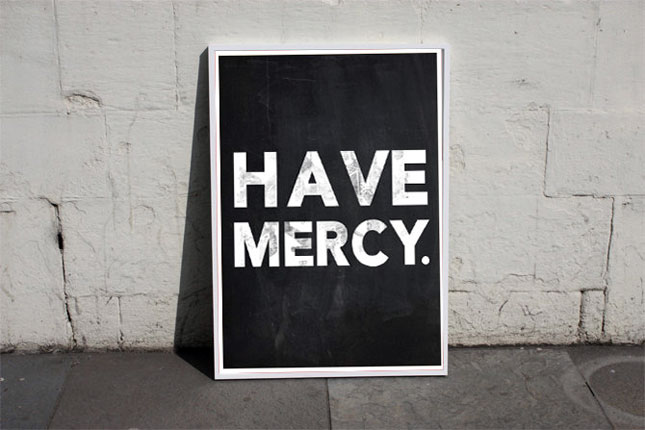Divine Mercy Sunday is a relatively new addition to the Church’s liturgical year. In 2000 Saint John Paul II named the Sunday after Easter as Divine Mercy Sunday (flowing from a devotion to Christ’s Divine Mercy by a Polish nun, St. Maria Faustina Kowalska). So what do we celebrate?
First, we celebrate that for Christians God is a God of Infinite Mercy- always willing to forgive, heal and reconcile- which should give us hope. No matter how we have made of mess of life or how we have sinned or how we have ignored God in the past God willing to take us back (e.g. the Parable of the Prodigal Son) and show us how much we are loved.
Second, as Pope Francis reminds us, mercy is not just an abstract virtue to be celebrated in Christ but a call to action for all of us. We are called to treat others with mercy- even family members who we often find it the hardest to forgive. But how? There is no pre-determined way- we need to rely on God’s grace in each situation but I think one thing that often blocks us from mercy is our collective pride. A pride which assumes that we are all strong and that any wrong done against us is always the result of evil, ill will or aggression (which it might be). However, in my experience (which might be too limited, I admit), mostly people act badly not out of evil intention but fear, or a sense of panic, or a sense of being deprived of some good or the need to justify self by appearing better than another (whether another social class or race or ‘political opinion’). This is a mistake and I think St. Clare of Assisi might help us.

History has left us only a few writings from Saint Clare but her Second Letter to Saint Agnes of Prague probably written around 1238 tells us something which might be helpful in living ‘mercy’ (you can find a copy of the letter here: https://ourladyofthepearl.com/saint-clare/third-letter-to-st-agnes-of-prague/, accessed March 5, 2017). Clare is writing to Agnes, an abbess of a convent in Prague, who is probably depressed about problems she is having with the Pope in obtaining trying to live out poverty as a community of consecrated women. Clare peppers her letter with references to joy and the importance of persistence in the face of difficulties. On the question of fasting Clare advices moderation saying: “But our flesh is not bronze, nor our strength that of stone, rather we are frail and inclined to every bodily weakness!” (verse 38). Indeed! Each of us is frail (not in the sense of being powerless, but having some anxiety or doubt about ourselves from the past) and weak, needing each other and God. Often others act out of weakness (as we do!) and we can find that so hard to overlook or forgive. Let us try to see how fragile (i.e. breakable!) we are- but that we can gain strength to overcome through God’s grace if we choose.
Let us try to understand and be merciful to those whom we love most, to support them rather than judge them! In other words let mercy live where you are!
MDA doctors put mercy into action and you can help this work through prayer and monetary donations! God bless you!
Br. John Kiesler
